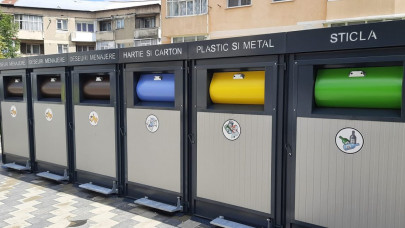In this context, the Friedrich Ebert Foundation carried out, between March and May 2023, extensive research on active employment policies and training programs in the context of the just transition, with Galati County as a case study at the center of the analysis. Galati County is responsible for 25% of greenhouse gas emissions at the national level and has been allocated €428 million through POTJ for diversifying the local economy, supporting workers, and mitigating the negative effects of the transition, the authors of the study said.
The research used mixed methods, quantitative and qualitative, including semi-structured interviews with specialists and actors directly affected by the problem of the study, observational analysis, and interviews with ordinary citizens looking for a job.
Regarding the general involvement of the population in the process of transition to a green economy, the study revealed the extremely precarious level of awareness of the concept of green transition and the opportunities it brings, especially among young people and entrepreneurs in Galati County.
"Since understanding the need, risks, and opportunities of the transition is a sine qua non-condition for ensuring essential public participation in the just transition process, the report recommends the use of POTJ funds for awareness and education campaigns, including non-formal ones," the study says.
The labor market in Galati county shows a worrying prevalence of informal, black and gray work, the number of unemployed registered (about 10,000 people) in the records of the County Employment Agency (AJOFM) being extremely small compared to the total working-age population at the county level (about 310,000 people).
"The effectiveness and attractiveness of the public employment service prove to be limited, the study recommends measures such as the modernization of AJOFM services, the creation of territorial work antennas, and the support of occupational mediation structures. It is also necessary to eliminate the taxation of part-time work, open access to REVISAL, and professionalize the territorial labor inspectorates", the authors of the study argue.
The research also revealed the poor quality of the professional training courses, their inadequacy of the requirements of the labor market, and the inadequate nature of the practical training within the courses.
In this sense, the recommendations for improvement are varied, from rewarding the success rate of training program providers to streamlining counseling mechanisms and financing pilot training consortia between the private sector, training providers, and AJOFM.
According to Eurostat, Romania is the last country in the EU in terms of the number of companies that facilitate employees' access to training programs (17.5% vs. 67.4% in the EU), so reforms are required for the co-interest of employers in the direction of continuous employee training.
"Creating quality jobs and supporting workers in accessing new opportunities is the guiding principle of the just transition. It is, therefore, very important that POTJ calls dedicated to supporting workers with different types of services are open competitively to the most capable institutions, public and private. In the long term, without structural reforms to adapt the educational system to the requirements imposed by the green transition and without the flexibility of continuous professional training, Romania will miss the chance offered by the generous European funding dedicated to the transition", you argue n the authors of the study, Corina Murafa, and Eliza Barnea.
The Friedrich-Ebert-Stiftung (FES) is the oldest political foundation in Germany, with a rich tradition in social democracy dating back to its founding in 1925.














